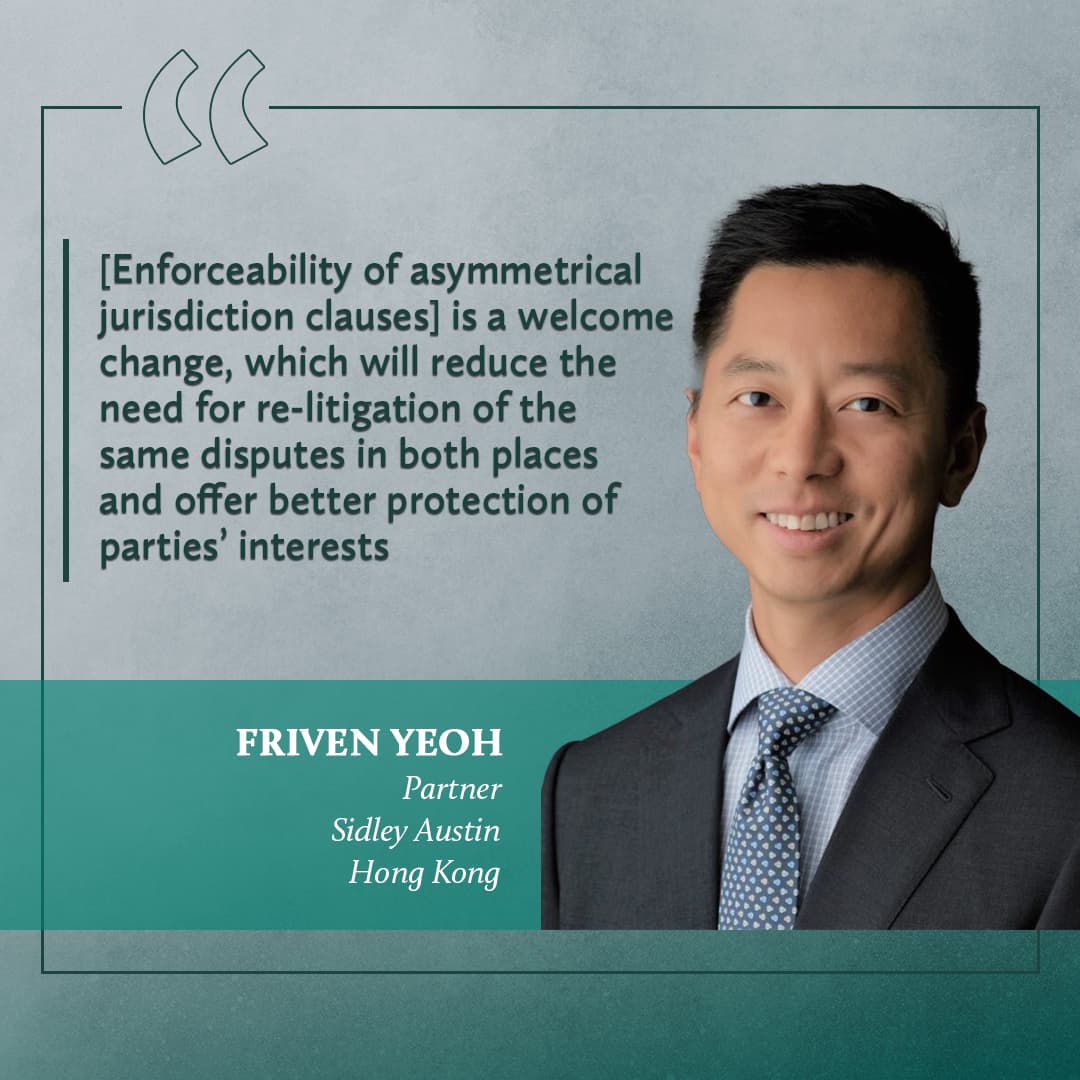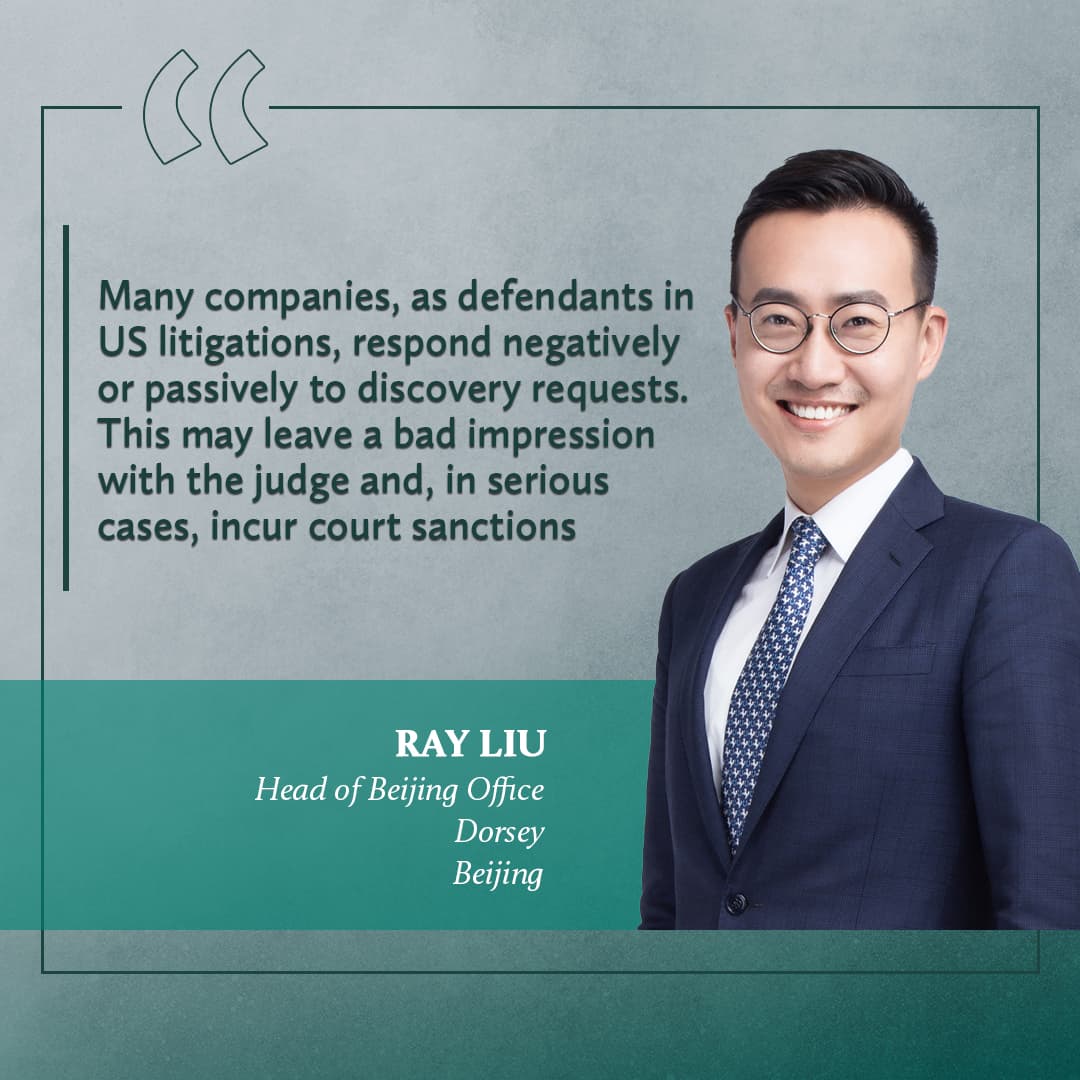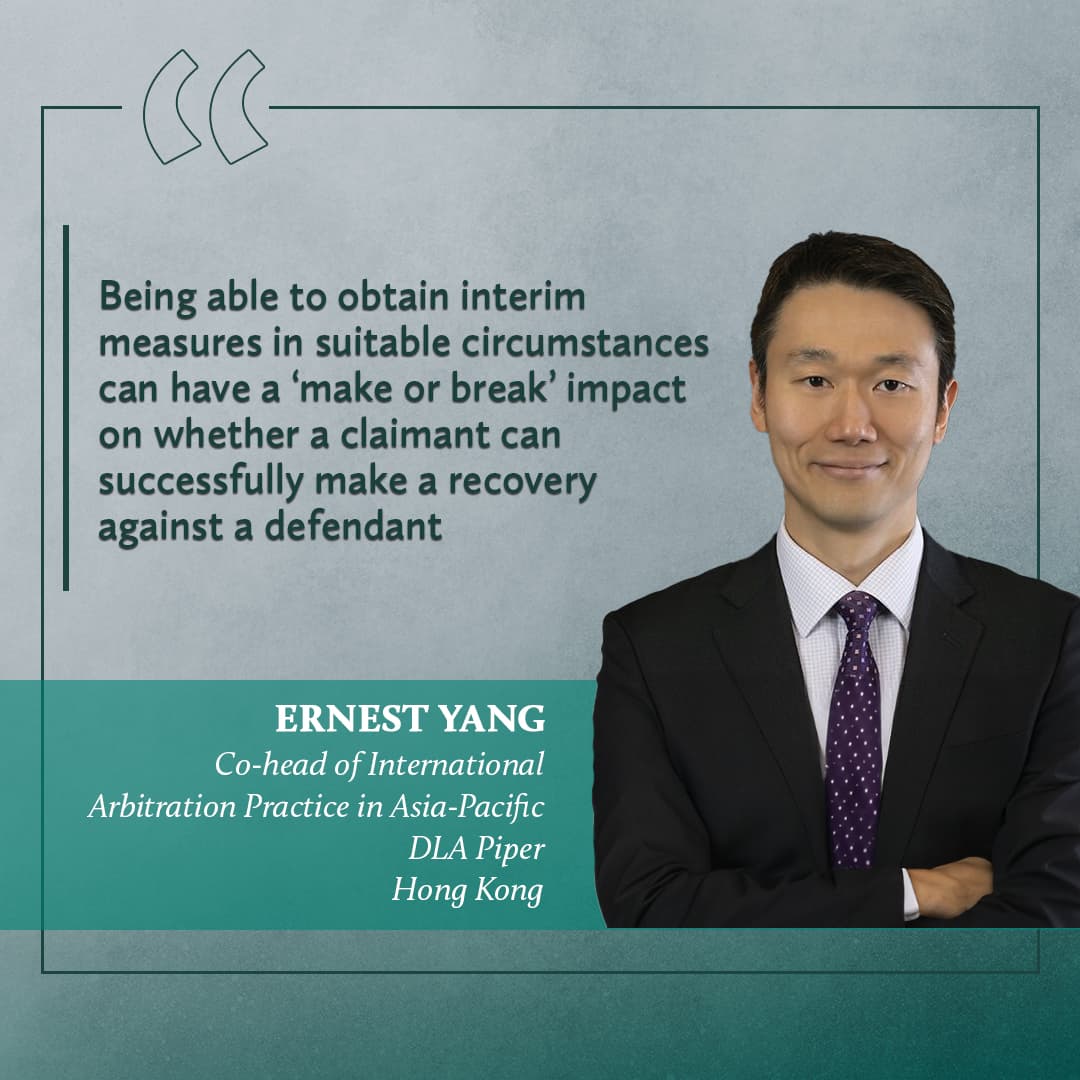Can China-related verdicts be recognised and enforced abroad? Kevin Cheng reports on positive developments with dispute mechanisms and more
Justice is universally accepted by most societies, but not judgments. The rest of the world has for the longest time held often negative views about Chinese judgments, and questioned their authority – and vice versa. However, the latest top-down developments could break the ice of the reciprocity impasse.
It is fine if things are strictly within the border, but this is unlikely for most businesses at a time when supply chains are irreversibly globalised. And a hard-fought favourable verdict is for naught if extraterritorial courts ignore it.
Such nightmares are perhaps no longer relevant – vital justice system and arbitration mechanism updates in mainland China and its adjacent jurisdictions have increased the capacity to undertake or facilitate cross-border dispute resolution.
Chinese and foreign companies dealing with China-related businesses now have more tools at their disposal to defend rights, repel accusations and enforce justice at home and internationally.
Meanwhile, the pandemic, international political tensions and the economic downturn have dealt one bitter blow after another to the global supply chain and trade environment, driving up the likelihood of contested interests.
For companies, this means keeping up with the new trends and making wise decisions as to where and how to fight their legal battles, and avoid past misconceptions. After all, if you don’t adapt, someone else will, and it may just be your counterparties.
Reciprocity by the bay
Cross-border recognition and judgment enforcement have been the focus of many recent legislative and regulatory updates.
There are many reasons why Hong Kong, a unique common law jurisdiction wielding both Chinese and English as official languages, is recognised among Chinese firms as an ideal venue for international dispute resolution, and by extension Hong Kong law as the governing law.
For outbound Chinese companies, Hong Kong’s vicinity to mainland China, both geographically and in terms of the depth of systemic co-operation, can be reassuring when sailing in unfamiliar waters.
That sense of intimacy was augmented on 10 November 2023, when the Hong Kong government announced the Mainland Judgments in Civil and Commercial Matters (Reciprocal Enforcement) Ordinance, along with the Mainland Judgments in Civil and Commercial Matters (Reciprocal Enforcement) Rules, which become effective on 29 January 2024.
The ordinance seeks to implement the Arrangement on Reciprocal Recognition and Enforcement of Judgments in Civil and Commercial Matters by the Courts of the Mainland and of the Hong Kong Special Administrative Region, which was entered into in January 2019.
Resolving different enforcement rules is a constant headache for parties in cross-border disputes, and the ordinance and arrangement offer relief by greatly facilitating mutual recognition and enforcement of judgments between the jurisdictions.
Under the pre-existing reciprocal arrangement, contracts must designate either mainland or Hong Kong courts as having exclusive jurisdiction for related judgments to be enforceable, says Friven Yeoh, a Hong Kong-based partner at Sidley Austin.
When the new scheme comes into force, judgments pertaining to contracts that contain asymmetric jurisdiction clauses will also be enforceable, provided the enforcing party can establish a connection between the dispute and the place issuing the original judgment.
“This is a welcome change, which will reduce the need for re-litigation of the same disputes in both places and offer better protection of parties’ interests,” says Yeoh.
According to the Hong Kong government, the arrangement will be implemented through judicial interpretation by the Supreme People’s Court.
“Following the arrangement, judgments that can be recognised and enforced are no longer limited to the monetary type, parties are no longer required to agree on a sole court of jurisdiction, and most types of commercial judgments handed down by mainland courts can be recognised and enforced in Hong Kong,” says Rocky Ji, managing partner at the Beijing office of East & Concord Partners.
“This represents a more comprehensive mechanism for mutual recognition and enforcement of civil and commercial judgments between the two jurisdictions, and the burden on the parties is greatly reduced.”
Ray Liu, Dorsey’s global partner and head of its Beijing office, says the ordinance and arrangement will not only expand mutual recognition, but also “clarify the procedures and methods of recognition and enforcement, the circumstances under which a judgment cannot be recognised or enforced, and the available routes to redress”.
While the new regime smooths up the process, it does not mean an automatic application of verdicts between the territories. In particular, Paul Lam, the Secretary for Justice of Hong Kong, posted on his social media certain clarifications on the arrangement of mutual recognition.
Lam said mainland verdicts would not automatically take effect in Hong Kong, but required the winning party to apply and register a copy of the judgment with the Hong Kong Court of First Instance. In addition, the other party must also be notified and given the opportunity to consider applying for annulment of the registration with the Hong Kong court.
He also stressed mutual recognition and enforcement did not mean mainland China and Hong Kong would be “sharing judicial information”.
Sun Huijuan, a partner at the Beijing head office of Haiwen & Partners, looks forward to the implementation of the reciprocal arrangement, but also warns that local courts in China may not always be experienced in dealing with cross-border matters, and it may fall to the parties and their counsel to communicate with them on the latest developments.
Extension of judicial reach
Apart from the interjurisdictional linkage with Hong Kong, the judicial system of mainland China also underwent heavyweight revisions that significantly broadened the jurisdiction of Chinese courts over foreign-related civil and commercial cases.
The latest amendments to the Civil Procedure Law (CPL) were approved by the Standing Committee of the National People’s Congress of China in September 2023, and are expected to come into effect on 1 January 2024. This marked the fifth amendment to the CPL since its 1991 enactment, but the first substantial revision to foreign-related civil litigation.
According to the CPL’s latest amendments, Chinese courts may have jurisdiction over foreign-related civil and commercial disputes if they have “other appropriate connections” with China.
EXPANDED TOOLBOX IN HONG KONG
In addition to enjoying a greater degree of reciprocity with mainland China, parties to Hong Kong-seated disputes may also be pleased to discover a greater selection of arbitration mechanisms at their disposal.
Flexible fee
One of the most heavyweight additions in recent memory is Hong Kong’s 16 December 2022 full implementation of the Outcome Related Fee Structures for Arbitration (ORFSA) regime.
Under the ORFSA regime, parties to Hong Kong-seated arbitrations and their lawyers may enter into:
-
- a conditional fee agreement (CFA);
- a damages-based agreement (DBA); or (3) a hybrid DBA.
“The introduction of the ORFSA regime is necessary for Hong Kong to keep up with the latest practice in international arbitration, and respond to the demands of arbitration parties for flexible fee arrangements,” says Li Lianjun, a Hong Kong-based partner at Reed Smith.
ORFSA is generally viewed as a party-friendly mechanism that boosts Hong Kong’s status as a venue of international arbitration. However, not everyone at first welcomed the additions, with many adopting a “wait and see” approach.
During Hong Kong Arbitration Week 2023, in October, John Choong, a Hong Kong-based partner at Freshfields told a panel discussion on ORFSA that only four known cases had adopted the mechanism up to September this year.
Heidi Chui, a Hong Kong-based partner at Stevenson Wong & Co, has observed scepticism among the arbitration community, and thinks the mechanism may sometimes be too much of a leap of faith.
If the parties are confident about the merit of their case, they may deem it unnecessary to part with a significant portion of their victory, says Chui. And if the case is weak, the legal team may not be prepared to take the risk of draining firm resources in a drawn-out battle.
Acknowledging that it may take more time before a higher ORFSA take-up rate is achieved, Friven Yeoh, a partner at Sidley Austin in Hong Kong, points out that the Department of Justice’s ORFSA Guidance Note and Checklists can serve as a quick and concise tool for prospective users to check against whether the ORFSA agreement to be entered into is valid and enforceable.
Outside funding
By comparison, the third-party funding (TPF) mechanism, permitted in Hong Kong arbitration since February 2019, has seen widespread action. Choong cited 87 TPF cases in Hong Kong at the same panel discussion.
In mainland China, the TPF is relatively new and there are no clear laws or regulations on the subject. Consequently, its level of acceptance by courts is a subject of great interest, and each new application carries with it the fervent gaze of the legal community.
Cao Lijun, a Beijing-based partner at Zhong Lun Law Firm, cites two judgments as particularly noteworthy. The first concerns a 2021 contract dispute in Shanghai, in which the Shanghai No. 2 Intermediate People’s Court declared the investment agreement in question null and void. This was on the grounds that funding in litigation represented the hold of capital over legal action, in contrast to the public attribute of judicial activities serving the public interest and core values of harmony and amity.
On the other hand, in Ruili Airlines et al v CLC Aircraft Leasing (Tianjin) (2022), the No. 4 Intermediate People’s Court of Beijing Municipality held that the TPF used in arbitration did not violate existing laws and arbitration rules, and did not constitute grounds for setting aside the arbitral award.
Of the latter case, Ray Liu, a Beijing-based global partner at Dorsey, said the ruling established for the first time that funding from a TPF institution did not breach arbitration confidentiality.
Interim measures
Another critical link setting Hong Kong apart for Chinese parties is the Mainland China-Hong Kong Interim Measures Arrangement, which came into force in October 2019; an arbitration-friendly measure allowing parties to freeze assets in Hong Kong or mainland China in aid of arbitration proceedings commenced in either jurisdiction. It marked the world’s first mutual judicial assistance arrangement to support interim measures in arbitral proceedings between two jurisdictions.
The impact of interim measures is, according to Ernest Yang, the Hong Kong-based co-head of international arbitration practice in Asia-Pacific at DLA Piper, an aspect often overlooked by parties.
“Being able to obtain interim measures in suitable circumstances can have a ‘make or break’ impact on whether a claimant can successfully make a recovery against a defendant,” he says.
Normally, interim measures obtained elsewhere are not enforceable by mainland China courts, which also wield limited legal authority to grant interim measures for arbitration proceedings outside their own jurisdiction.
However, Hong Kong enjoys a unique advantage in this regard, as parties choosing one of seven qualified arbitration institutions – including the Hong Kong International Arbitration Centre, CIETAC Hong Kong and ICC International Court of Arbitration – to commence Hong Kong-seated arbitration can apply for the preservation of assets, evidence or conduct in mainland China.
“With the large volume of international arbitrations involving mainland China-related disputes or parties, or evidence or assets located in mainland China, the availability of interim measures is of paramount practical importance,” says Chui. “This has distinguished Hong Kong from other locations as a seat of arbitration.”
At a recent seminar on the interim measures arrangement during Hong Kong Arbitration Week 2023, it was announced that over the four years since the implementation of the arrangement, 100 applications had been submitted to 35 different intermediate people’s courts across 27 cities in mainland China.
Chinese courts have jurisdiction if it is expressly stated in the written agreement. But even without such a clarification, if a party does not raise an objection to the jurisdiction and participates in the proceedings by submitting a defence or filing a counterclaim, the Chinese court will have jurisdiction.
In addition, the amendments add two scenarios under which the Chinese court shall have exclusive jurisdiction:
- disputes arising from the establishment, dissolution, liquidation of legal persons or other organisations established within China’s territory; and
- disputes related to the validity of IP rights granted through examination within China’s territory.
You must be a
subscribersubscribersubscribersubscriber
to read this content, please
subscribesubscribesubscribesubscribe
today.
For group subscribers, please click here to access.
Interested in group subscription? Please contact us.

























